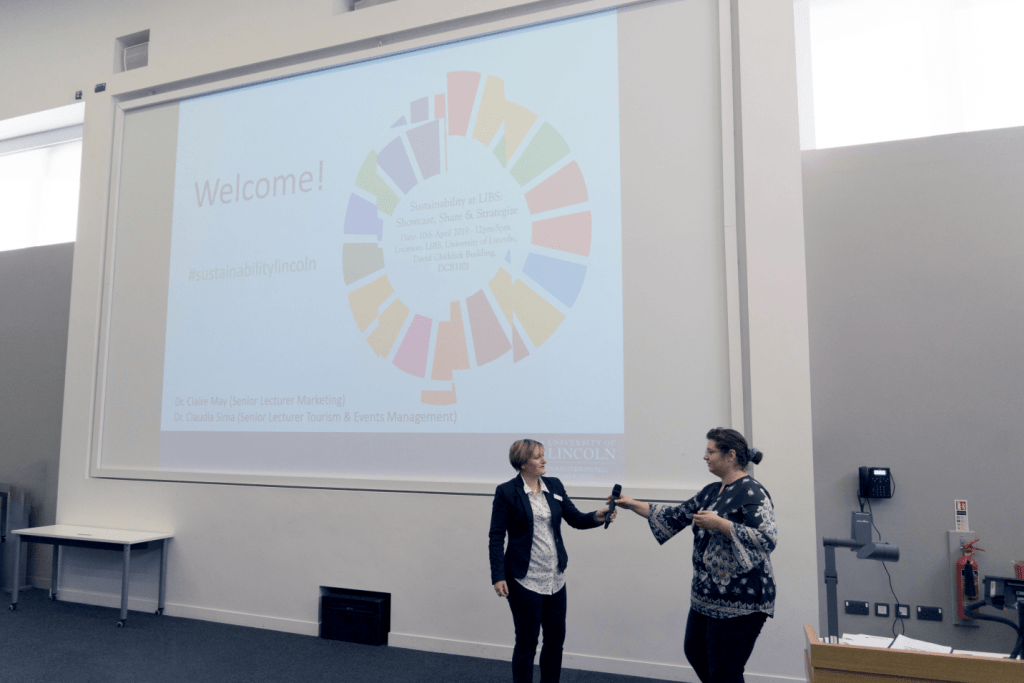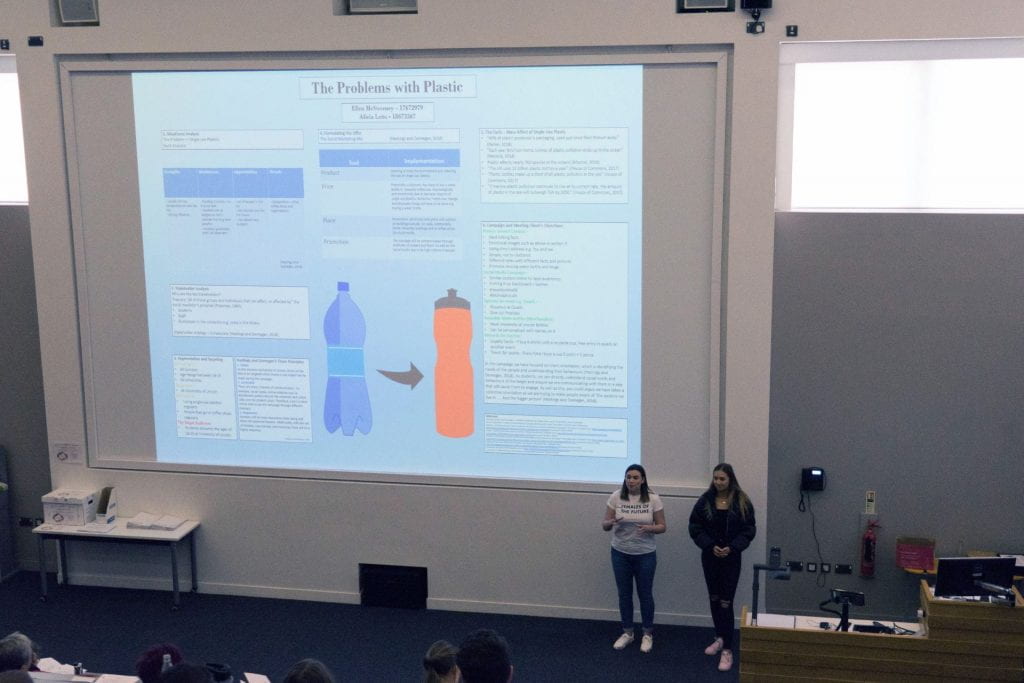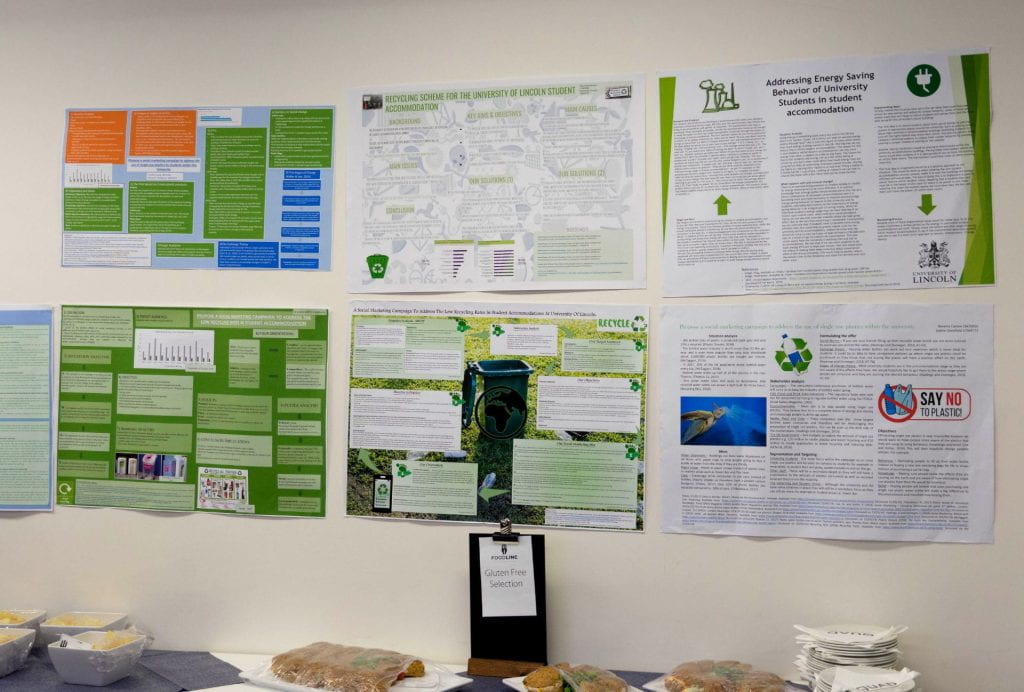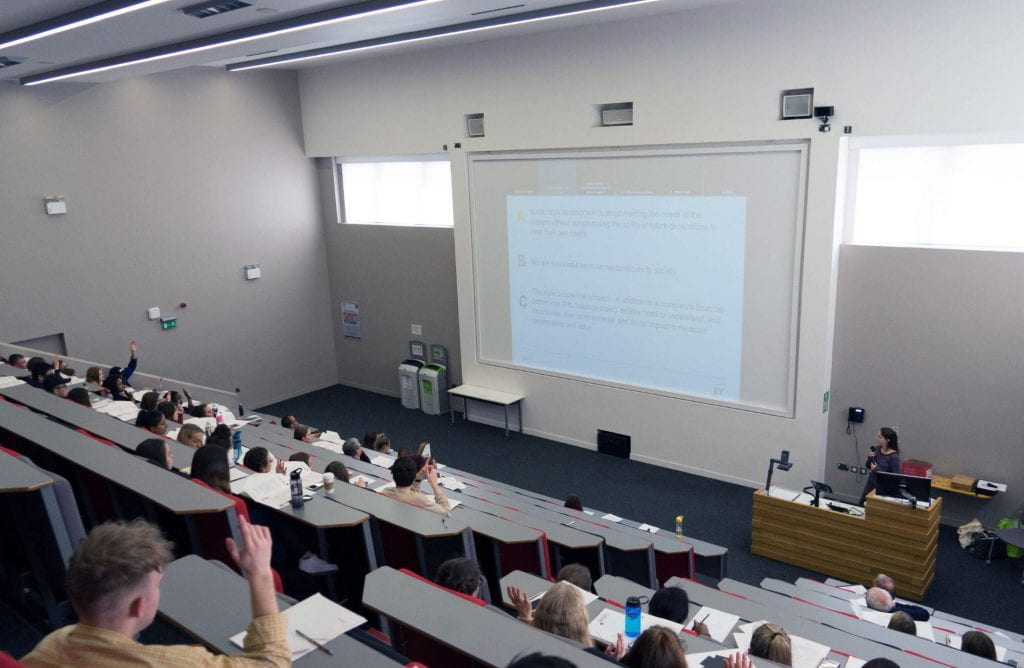
C. May & C. Sima
Here we describe our experience of developing and hosting an internal conference designed to raise the profile of sustainability within Lincoln International Business School (LIBS) and to promote the Sustainable Development Goals (SDG’s). We discuss the rationale and motivations for choosing the conference vehicle and report on our observations of responses to the event and the outcomes it had.
What we did and why
There were several motivations that inspired the conference. Firstly the desire to recognise the within-module work that students throughout the Business School are involved with that is engaged with sustainability and the SDG’s and to share and promote this more widely within the School. Similarly there was an awareness that students were not necessarily aware of the range and extent of faculty research and engagement in sustainability outside of the classroom context. It was hoped that by highlighting this, and also what the estates team are doing in terms of the practical running of the physical building to make it more sustainable, would help students see that the commitment we (LIBS) have is one that we ‘walk’ as well as just ‘talk’. We invited keynote speakers who were industry sustainability professionals to further contextualise learning, spark interest and provide examples. It was anticipated that doing this as a joint staff/multiple student group body would enable and solidify sustainability and PRME as part of our School identity, thereby enhancing the student experience and engagement within modules as well as to sustainability more broadly.
In order to enhance student engagement and in line with our ‘Student as Producer’ pedagogy (University of Lincoln 2019), we also aimed for the conference to be co-produced with students as far as possible. Students were asked to present their work at the conference, to be on the organising committee, help with running of the day, manage social media, design artwork and to facilitate some of the sections within the conference. In addition we asked a group of consultancy students to conduct research into the impact and effectiveness of the event in terms of SDG’s understanding and awareness, amongst other things.
We included within the conference a ‘call to action’ that we entitled ‘strategize’. Linked to the hope for the conference to be an identity building exercise for the School and also to have a demonstrable impact on behaviour, we included a suggestion box scheme and personal pledge section.
Another pedagogical consideration was the need to enhance motivation and engagement towards sustainability (and taught content) and it was hoped that the conference as an alternative teaching practice would help facilitate this. Beyond the recognised need for this subject to be more widely integrated into teaching practice it is acknowledged that engaging non-majors in concepts involving environmental science can be a significant challenge (Rogers and Kremar 2018), therefore the issue of motivation to study sustainability from a business student’s perspective and how this can be developed is of interest.
What we found
Initial student response to the initiative was lukewarm, largely we believe due to unfamiliarity with the nature of a conference (‘what is it? Like a 5 hour lecture?’) and due to feeling unsure about being asked to present.
The event itself had a very good turnout, mostly of students, with approximately 125 registered. Students from several modules participated, and having it as a timetabled requirement helped this. A design student was employed to prepare the graphics for promotional materials. Several students presented at the conference and others were asked to manage the social media for the event. Best poster presentations were awarded a prize by the UoL Environmental Manager and their suggestions could be implemented by the Environment Team. We were pleased to welcome a range of excellent keynote speakers and have an introduction from Dr. Craig Marsh to demonstrate the significance of the agenda for the college.
Overall the event was considered to be a success. We have had many positive comments from colleagues and informal student feedback also demonstrated that the event was well-received and useful, however they found it too long. We have been asked to replicate the event in future years.



